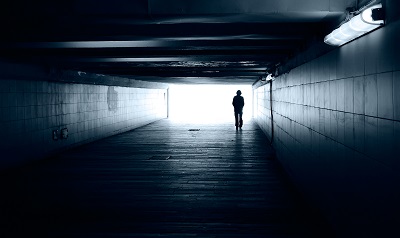The grant will fund new programming.
For Immediate Release
SANCTUARY FOR FAMILIES TO DEVELOP PILOT PROGRAM TO PREVENT AND END HOMELESSNESS AMONG DOMESTIC VIOLENCE SURVIVORS, SUPPORTED BY A NEW $250,000 GRANT FROM DEUTSCHE BANK AMERICAS FOUNDATION
New York, NY (January 21, 2016) — Sanctuary for Families (Sanctuary), New York’s leading service provider and advocate for survivors of domestic violence, sex trafficking, and related forms of gender violence, has been awarded a grant of $250,000 for domestic violence survivor homelessness prevention and strategy development from Deutsche Bank Americas Foundation (DBAF). Sanctuary will use the DBAF grant to develop and implement a housing-focused pilot of its pioneering Economic Empowerment Program (EEP), which provides intensive career training focused on helping clients secure living-wage jobs. The new pilot will help homeless domestic violence survivors who graduate from the EEP program find affordable permanent housing in the competitive NY housing market. Sanctuary will also convene thought leaders in the field to develop innovative evidence-based theories and implementation policies to systemically address homelessness for domestic violence survivors in NYC.
Finding affordable housing is a daunting task in New York City, and many landlords are reluctant to rent to domestic violence survivors. Under the housing pilot, EEP participants who have successfully met the program’s training standards and employment placement goals will be eligible for a security deposit to be paid directly to landlords. This security deposit, coupled with employment and the city’s guaranteed housing subsidy for those who are eligible, will be the financial stimulus needed to convince landlords to sign leases. Additionally, the funds will support EEP staff in bringing on a new Housing Fellow to work intensively with clients to identify affordable housing, and provide support for clients to be successful in their housing and career goals.
Hon. Judy Harris Kluger, Executive Director of Sanctuary for Families, said “Poverty and homelessness are the high price that many survivors of domestic violence pay in order to escape abuse. The key to eliminating homelessness among our clients is to help them attain sustainable living-wage jobs, which will reduce their need for public assistance and housing subsidies. It is equally important that we incentivize landlords to provide safe and affordable housing to our clients once their circumstances have become stable. We are grateful to Deutsche Bank Americas Foundation for this generous grant that will help us break the cycle of abuse, poverty and homelessness for domestic violence survivors.”
In addition to this pilot, Sanctuary will also use the DBAF grant to develop innovative evidence-based theories and implementation policies to reduce homelessness among abuse survivors to a functional zero level. Sanctuary will build a broad collaborative of governmental, nonprofit, homelessness, and workforce development domestic violence service providers and advocates, as well as public and private funders, to develop these models. The DBAF grant will enable Sanctuary to convene large-scale conferences in 2016 and 2017 and quarterly task force meetings to set milestones and scaling plans to accomplish this task.
Sanctuary for Families is committed to finding the solution to homelessness among domestic violence survivors in New York City through a holistic approach, with living-wage workforce training and employment placement strategies at its core. New York City has recognized EEP as a formidable and effective solution to the crisis of homelessness and poverty among domestic violence survivors, and tapped the program to deliver workforce solutions to the population of abuse survivors living in shelters. More than 50% of EEP’s current clients are homeless women, referred by HRA. Over the past five years, EEP has graduated 494 clients, including 150 referred by HRA, with consistent 65-70% job placement, 65% one-year retention, and salaries averaging $13.71/hour, over 50% higher than the state’s private industry minimum wage.
SANCTUARY FOR FAMILIES
Sanctuary for Families is New York’s leading service provider and advocate for survivors of domestic violence, sex trafficking, and related forms of gender violence. Each year, Sanctuary empowers thousands of adults and children to move from fear and abuse to safety and stability, transforming lives through a comprehensive range of services.
Deutsche Bank
Deutsche Bank provides commercial and investment banking, retail banking, transaction banking and asset and wealth management products and services to corporations, governments, institutional investors, small and medium-sized businesses, and private individuals. Deutsche Bank is Germany’s leading bank, with a strong position in Europe and a significant presence in the Americas and Asia Pacific.
###
Contact:
Ilyse Fink or Blaine Bilal/212-575-4545
For Sanctuary for Families
ifink@lakpr.com /bbilal@lakpr.com
Oksana Poltavets/212 -250-0072
Press & Media Relations, Deutsche Bank AG
oksana.poltavets@db.com
###


